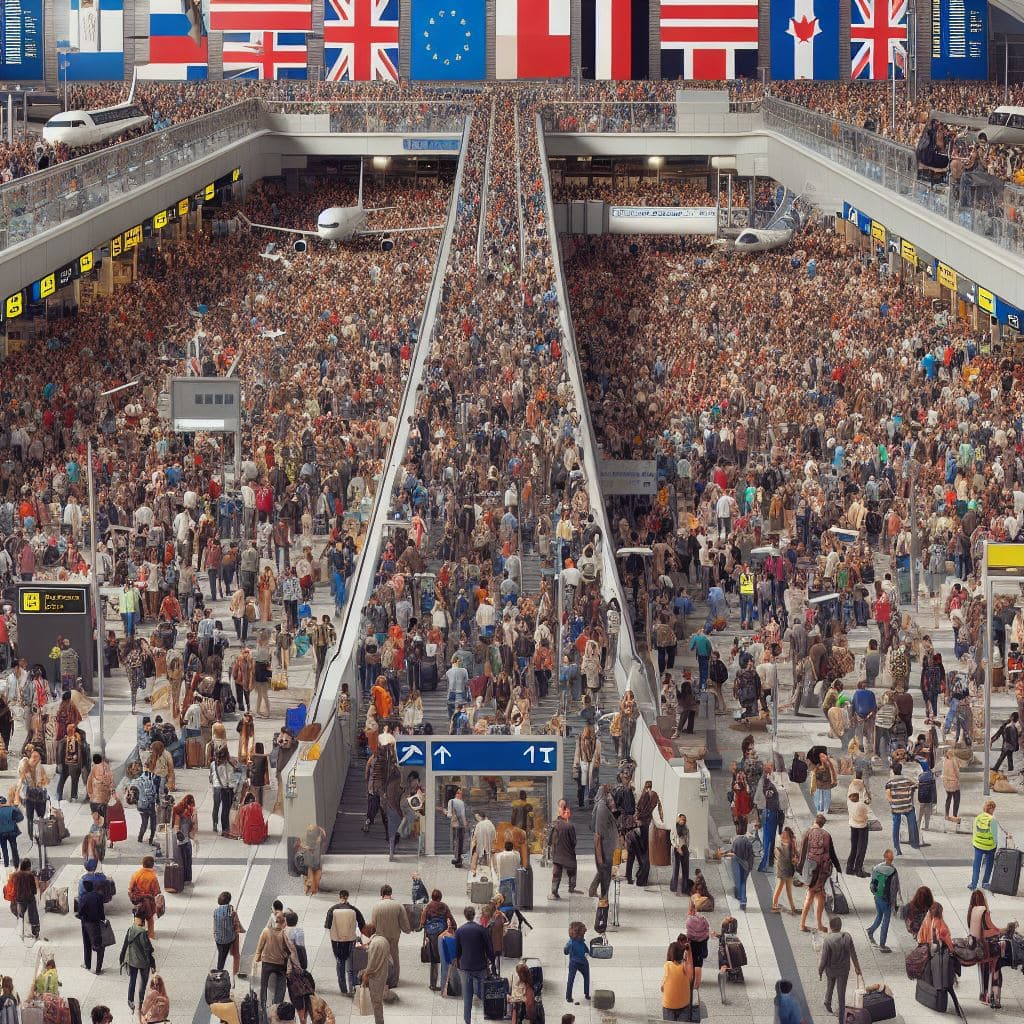The Road To Serfdom revisited: was Hayek right?
SUGGESTED



The IEA’s Kristian Niemietz was one of the panellists. The article below is based on his opening remarks.
Friedrich August von Hayek was the indirect founding father of this institute.
Not only was Anthony Fisher, the future founder of the IEA, deeply influenced by Hayek on an intellectual level. Hayek personally persuaded Fisher to dedicate himself to the battle of ideas, instead of entering politics. Hayek’s paper The Intellectuals and Socialism is the closest thing the IEA has to a founding document.
He continues to influence the institute’s work to this day. Virtually every major IEA publication draws on some Hayekian theme: the role of market competition as a trial-and-error process; the role of dispersed and tacit knowledge in the economy and the limits to economic dirigisme; the role of market prices as signals and sources of information, etc.
So Hayek is, not unreasonably, held in extremely high regard here. If we had to name ourselves after a person, like the Adam Smith Institute – we would almost certainly be the Friedrich August von Hayek Institute.
Nonetheless: Hayek did get a few things wrong in The Road To Serfdom. Wrong for perfectly understandable reasons, given the circumstances of the time, but wrong nonetheless.
For a start: for the next three and a half decades after the publication of the book, Britain continued to travel further down the road that Hayek had described as a road to serfdom. Just as he had feared, the post-war economic settlement locked in a lot of the wartime economic planning.
And that was a bad idea. It led to a period of relative economic decline, and to a squandering of Britain’s post-war economic opportunities. But it was not a road to serfdom. It was “just” a road to less prosperity. Britain, in 1979, was a country that fell far short of its economic potential. But it was not any less of a liberal democracy than its peers. It had not become fascist, and it had not turned into the Soviet Union.
We need to distinguish more carefully between economic policies that will “just” make you poorer, and economic policies that are incompatible with a free society.
There is a strong relationship between economic liberalism and personal freedom. “Exchange rate controls”, for example, may sound like a dry economic term, but they meant, in practice, that Brits had to effectively ask their government for permission every time they wanted to travel abroad, and use foreign currencies. It is our job, as Hayekians and free-market liberals, to explain those connections. But if we come across as overly alarmist on this, we risk devaluing our message. The interventionist state is a bossy nanny state, but it does not have to lead to full-blown totalitarianism.
Given the circumstances of the time, and Hayek’s own biographical background, it is understandable that this book was not exactly bursting with sunny optimism. But modern-day Hayekians have the benefit of hindsight, and we should apply it.
Hayek also got a few things wrong about his own time. He was a bit too keen to apply his ready-made formula for how totalitarianism emerges.
Hayek’s argument was that if you try to plan an economy within a democratic framework, you create chaos, because democracies are not suited for that task. Democratic economic planning would require an unrealistically high degree of agreement in society about economic ends and means, that is, agreement on things that we do not, in fact, agree on. Out of that chaos, a “strongman” figure will emerge, who promises to “get things done”.
That is his explanation for, among other things, the rise of National Socialism. The problem is that that is not what actually happened. That is not how Hitler came to power.
There was, of course, economic chaos in early 1930s Germany. But that was not specifically the result of “too much planning”. It was part of a global economic crisis, which just affected Germany particularly badly.
There was plenty of political chaos, too. Weimar-era politics was extremely polarised and dysfunctional. There were too many parties, they were ideologically too far apart, and they were unable, or unwilling, to cooperate with each other. But it was not specifically economic planning that they were divided over.
For example, the last democratic Weimar-era coalition broke up in 1930 over a dispute over unemployment insurance. Unemployment had skyrocketed, and threatened to overwhelm the unemployment insurance scheme, so something had to be done, and the coalition parties could not agree on what.
That is not a problem of “too much economic planning”. Unemployment insurance is a function of the state which even Hayek would have been OK with.
For Hayek, the rise of National Socialism was not some freak accident, but a culmination of a much longer process. I think that’s wrong. Not everything is determined by big, structural, economic forces. Sometimes, outcomes really are driven by more mundane things, like basic human errors of judgement. We could imagine plenty of realistic scenarios in which Hitler does not come to power, but which do not involve anything approaching Hayekian liberalism either.
I’m not talking about some whacky counterfactual history here. I’m talking about very unimaginative things, like not having a general election in 1932, at the height of the Great Depression. That was the election which completely messed up the parliamentary arithmetic, making any coalition between democratic parties impossible. If the election had, instead, taken place in 1934, as originally planned, it would have taken place against the backdrop of an economic recovery. The democratic parties’ message might then have been: things are finally on the up; let’s not risk this fragile recovery by voting for dangerous radicals.
On balance, the things that Hayek was right about greatly outweigh the things he was wrong about. The reason why I have focused on the latter is simply that I assume that I am talking to an audience which is highly sympathetic to Hayek, so I don’t need to tell you how right he was in most respects. You already know that.
What he clearly got right in The Road To Serfdom, and what remains hugely relevant today, is the fact that socialist economies are incompatible with political and individual liberty. They must inevitably descend into tyranny, for the reasons Hayek explained.
That warning aged extremely well. When Hayek wrote those words, there was only one fully planned economy in the world: the economy of the Soviet Union. In the meantime, socialism has been tried in China, North Korea, Vietnam, Cuba, Cambodia, Angola, Mozambique, Burkina Faso, Albania, Nicaragua, Venezuela, and all the member states of the Warsaw Pact. Every time, it was supposed to be totally different. But of course, it never was.
This has still not been widely understood. Among British Millennials and Zoomers, the idea that socialism is a brilliant concept, which has just never been “properly” tried, is the mainstream opinion.
Hayek was not right about everything. But he was right about what, unfortunately, remains one of the key issues of our time.
2 thoughts on “The Road To Serfdom revisited: was Hayek right?”
Comments are closed.





I think there is another development that Hayek “missed” (although were he still alive he probably wouldn’t). That’s the joining together of central planning and its failures through lack of knowledge, (which he via Mises pointed out) with contemporary news management and the tyranny of the bureaucratic status quo. Governance has become sclerotic, aided and abetted by empty rhetoric about false targets and aspirations that are meaningless as practical ideas for policy. This blancmange of presentational blether is supported by party apparatchiks surrounding weak leaders presented as strong, but in reality fatuous figures. Totalitarian ideas can then slip through in democracies as politicians propose ideas that might show something is “being done”. Nicolas Sturgeon and various Holywood prat fall initiatives come to mind.
Re “democracy” or “democracies”
Any alleged expert or layperson who talks about “democracies” AS IF a real democracy ACTUALLY EXISTS ANYWHERE IN THE WORLD (or has existed at any time in ‘human civilization’) is evidently repeating mindlessly and blindly the propaganda fed to them since they were a kid and/or is part of the (unconscious, ignorant, naive, willful) crowd who disseminates this total lie because any “democracy” of ‘human civilization’ has always been a covert structure of the rule of a few over the many operating behind the pretense name and facade of a “democracy”: http://www.CovidTruthBeKnown.com (or https://www.rolf-hefti.com/covid-19-coronavirus.html)
“There is no America. There is no democracy. There is only IBM and ITT and AT&T and DuPont, Dow, Union Carbide, and Exxon. Those are the nations of the world today. […]. We no longer live in a world of nations and ideologies […]. The world is a college of corporations, inexorably determined by the immutable laws of business. The world is a business […].” — from the 1976 movie “Network”
“We can either have democracy in this country or we can have great wealth concentrated in the hands of a few, but we can’t have both.” — Louis Brandeis, Supreme Court Justice
In terms of “experts” or “awake” folks who sell you the fake program of democracies…
“All experts serve the state and the media and only in that way do they achieve their status. Every expert follows his master, for all former possibilities for independence have been gradually reduced to nil by present society’s mode of organization. The most useful expert, of course, is the one who can lie. With their different motives, those who need experts are falsifiers and fools. Whenever individuals lose the capacity to see things for themselves, the expert is there to offer an absolute reassurance.” —Guy Debord
Isn’t it about time for anyone to wake up to the ULTIMATE DEPTH of the human rabbit hole — rather than remain blissfully willfully ignorant in a narcissistic fantasy land and play victim like a little child?
“We’ll know our Disinformation Program is complete when everything the American public believes is false.” —William Casey, a former CIA director=a leading psychopathic criminal of the genocidal US regime
“Separate what you know from what you THINK you know.” — Unknown